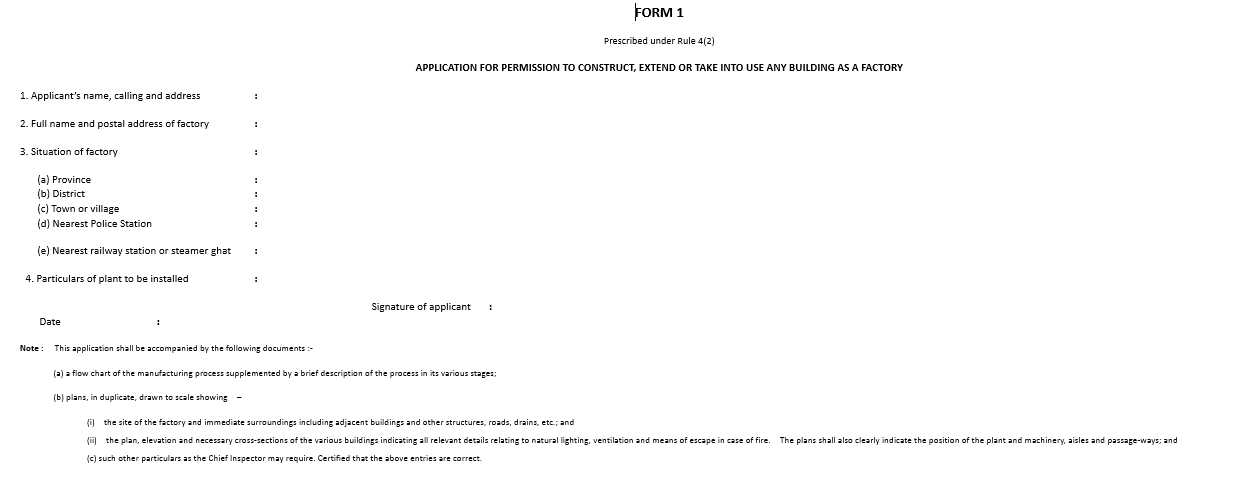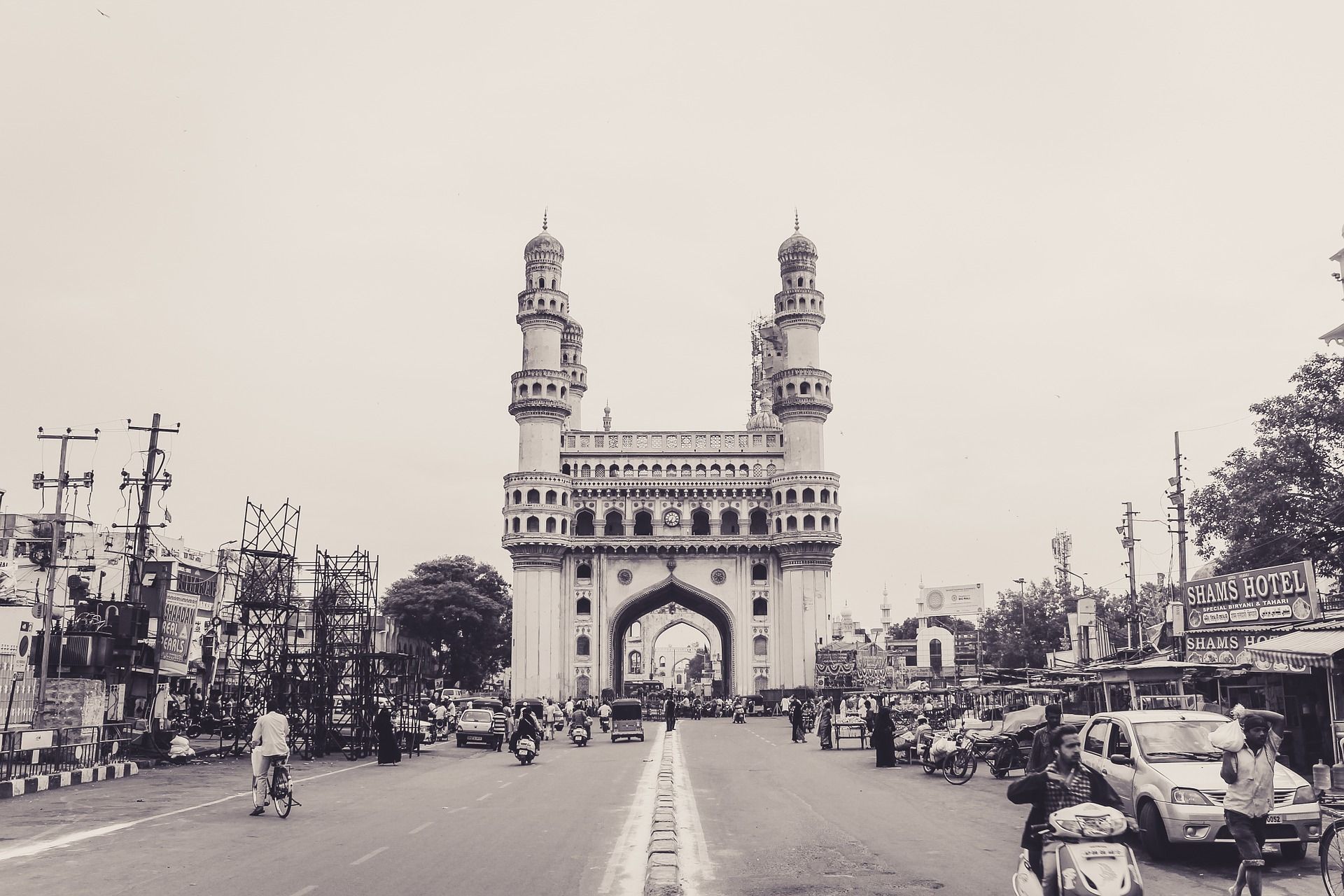Do you know the history of the factory law of India, which is more than 100 years old?
Almost a century after the process of modern industrialization began in Britain, it came to India, so the beginning of the Factory Act had to wait at the same time.
Let us go through the history lane to see how it all started:
The first cotton fabric factory was founded in Bombay in 1854. The pace accelerated, and by 1870 many factories had been established in Bombay, Nagpur, Kanpur, and Madras.
The Industrial Revolution in Britain between 1760 and 1820 changed production technology. Employment at the factory had increased significantly. Two different classes had emerged: the capitalist class and the working class.
Considering the lack of social measures and the poor condition and class of the workers, the Industrial Safety and Health Act was stipulated as the Factory Act of 1881, which was further modified and enhanced in 1948.
The Need and Relevance of the Act
The consideration of the British political economy was of paramount relevance in defining the Factories Act 1948.
The situation was that Indian textiles were known to be fiercely competing with British textiles in the export market, and Manchester and Lancashire pressurized the British parliamentary textile powerhouse to make India's labour force more expensive.
In response, the Factory Act was passed with the following protocols and restrictions:
- Eight-hour shift timings
- The abolition of child labour
- Restrictions on women's nightwork
- Introduction of overtime pay for work of eight hours or more
The impact of this measure was slightly welfare-oriented, but more of protection of trade.
Table of Contents:
- Introduction
- All About the Factories Act 1948
- List of Amendments in the order of Adaptation
- Compliances of the Factories Act 1948
- Aim and Objective for the Factories act 1948
- Applicability of the Factories act 1948
- Importance of the Factories act 1948
- Conclusion
- Key Takeaways
Introduction to Factories Act 1948
Factories act 1948 - In the second half of the 19th century, large factories/industries emerged in India. In his report in 1872-73, Major Moore, the chief inspector of the cotton department in Bombay, first raised the issue of introducing legislation regulating working conditions in factories. The first formation Factories Act 1948 was initiated in 1881. Since then, the Factory Act 1948 has been modified and amended multiple times.
All About the Factories Act 1948
The Factory Act 1934 was passed, replacing all previous laws related to factories. The law was drafted in light of the Royal Commission's recommendations on labour. This law is amended accordingly. The experience of applying the Factory Act of 1934 reveals many shortcomings and weaknesses that impede the effective application of the law, and the need for major amendments to the law to extend protection provisions to a large number of small industrial facilities.
Therefore, on August 28, 1948, the Member Assembly passed the Factories act 1948 and integrated and amended the Factory Act. The law was approved by the Governor-General of India on September 23, 1948, and came into effect on April 1, 1949. The Factories Act 1948 passed by Parliament was approved on September 23, 1948.
List of Amendments in the order of Adaptation
- The Repealing and Amending Act, 1949 (40 of 1949)
- The Adaptation of Laws Order, 1950
- The Repealing and Amending Act, 1950 (35 of 1950)
- The Part B States (Laws) Act, 1951 (3 of 1951)
- The Factories (Amendment) Act, 1954 (25 of 1954)
- The Central Labour Laws (Extension to Jammu and Kashmir) Act, 1970 (51 of 1970)
- The Factories (Amendment) Act, 1976 (94 of 1976)
- The Factories (Amendment) Act, 1987 (20 of 1987)
The Factories act 1948 is a social law enacted for the health, safety, and welfare of workers in the workplace. The purpose of the law is to regulate the working conditions of production companies that fall under the definition of the term "factory" used in the Factories act 1948.
Compliances of the Factories Act 1948
Form 1 - Application for permission to build, expand, or use the building as a factory
The applicant applies for a permit to build, expand, or use the building as a factory. That's what the factory chief inspector must achieve. Attach a manufacturing process flow sheet to the application to supplement a brief description of the process at each stage and plan.

Form 2 - Request for registration and license renewal issuance for the year
Factory owners are obliged to obtain a license by the provisions of the Factories act 1948. For this purpose, they must submit an application to the factory management office in the designated format. The application for license renewal must be submitted to the factory manager's office. The Licence is valid up to 31st December for the year granted. A renewal application should be complete in all respects and should be delivered in advance in the office of the Director of Factories at least 30 days before the due date of expiry of the Licence.

Form 4 - Notice is given by the occupier or the owner to report a change of Manager
The occupier/owner of the factory, as per the Factories act 1948, shall intimate the notice of change of manager in the format as prescribed in the registration form to the factory inspectorate.

Form 5 - Certificate of fitness
A certified surgeon may permit or renew such a young person in the form indicated.
- A certificate of ability to work as a child if a young person reaches the age of 14, meets certain physical requirements and is convinced that he is suitable for this job
- A certificate of aptitude for work as an adult when a young person reaches the age of 15 and he is convinced that he is suitable for a full-time job at the company. The certificate is valid only for 12 months from the date of issue

Form 9 - Registration of workers hired to work on or near a running machine
The register should store the name and other details of each such worker in all factories in a specific format that can be used for such investigations and operations.

Form 14 - Register of Compensatory Holidays
The administrator must maintain the registration in a specific format to manage the compensation leave granted to the employee. Except for employees who have to do work that must be done all day for technical reasons, the compensation leave given must be distributed so that no more than two holidays are given per week.

Form 15 - Overtime Schedule/Muster Roll for Dismissed/Exempted Workers
The manager of each factory with overtime workers should maintain a specific format sample list showing the normal piecework or hourly wages of all workers on vacation. This manager must enter the overtime and payments for all exempt workers correctly. The sample role should always be available for inspection.

Form 16 - Notice of working hours for adult employees
The manager of each factory shall keep the notice of the working hours of adult workers in the prescribed format.

Form 17 - Registration of an adult worker
The manager of each factory must maintain the registration of an adult worker in the specified format.

Form 18 – Child Laborers Notification period
The manager must cancel the working hours of the child labourer in the prescribed form.

Form 19 – Child Laborers Register Form
The administrator must maintain the child labour registration in the specified format.

Form 20 - Leaves registration with wages
The supervisor keeps a vacation log containing the specified format of wages. The salary and vacation register must be kept for 3 years after the last entry and presented to the inspector upon request.

Form 21 - Leave Book
The manager shall provide all employees who are eligible to take leaves during the calendar year with the Leave log in the specified format by January 31st of the following calendar year. Leave logs are the property of the employee. If an employee is dismissed or dismissed, the manager must issue Form 20 within one week from the date of dismissal or discharge.

Form 24 - Health Register
All employers are required to keep a health record according to the template provided. This includes name, age, gender, date of employment at the current job, date of transfer or transfer to another job with a reason for retirement or transfer, type of job or occupation that may be exposed to the product. Includes work-related health information such as by-products, health check and result details, and a certified surgeon's dated signature.

Form 25 - Report an accident or dangerous outbreak that could lead to death or personal injury
Occupiers/managers must report accidents or dangerous events that result in death or personal injury to factory inspectors.

Form 26 - Report a dangerous event that does not cause death or personal injury
The occupier/owner must report all dangerous events that do not cause death or personal injury to the factory inspector.

Form 29 - Annual Declaration
The manager of each factory shall submit to an inspector or other employee appointed by the state government by the declaration of the form specified below.

Form 30 - The manager of each factory shall submit to an inspector or other officer appointed by the State Government on his behalf within the time limit specified, based on the feedback on the form.

Form 31 - Muster rolls
The manager of each factory provides a model list of all workers employed in the factory, including:
- Each worker's name
- The nature of the work
- The worker's daily attendance
This must be maintained in the prescribed format. If the daily attendance is recorded in the Adult Workers Register on Form 17, or if the information required for this rule is recorded in another register, you do not need to maintain another model register.

Form 32 - Accident and Hazardous Occurrence Record
The manager of each factory must record all accidents and dangerous events that occur in the factory in a prescribed format.

Aim and Objective for the Factories act 1948
The main purpose of the Indian Factories Act 1948 is to regulate working conditions in factories, regulate health, annual leave, safety, welfare, and to establish special provisions related to young people, women, and children working in factories. It includes:
- Working hours: According to the Adult Working Hours Regulations, adult workers cannot work more than 48 hours a week in the factory. There should be a weekly vacation
- Health: To protect the health of workers, the Factories act 1948 requires all factories to be kept clean and take all necessary precautions. The factory needs proper lighting, drainage system, ventilation, temperature, etc. Drinking water should be provided with safe preparation. Sufficient toilets and urinals need to be installed in the right place. These need to be easily accessible to workers and should be kept clean
- Security: To ensure worker safety, the Factories act 1948 fences machines, does not allow young people to work on dangerous machines, and manholes to be arranged for in reasonably sized confined spaces to allow workers to escape in an emergency
- Care: For the well-being of workers, the Factories act 1948 stipulates that all factories must provide and maintain appropriate cleaning equipment for their use. Seats, first aid facilities, shelters, break rooms, dining rooms, facilities for storing and drying clothes must be available
- Penalty: Violations of the provisions of the Factories Act 1948 or rules created under that Act or written orders issued under Factories act 1948 are treated as criminal offences. The following penalties may be imposed -
- Up to one year in prison
- A fine to be paid of up to 1 lac rupees
- Fine and imprisonment
- Rs 500 fine may be imposed if a worker misuses the equipment in connection with the worker's welfare, safety, health, or in connection with the performance of his/her duties
Applicability of the Factories Act 1948
The Factories act 1948 applies to any factory that has more than 10 workers working or has worked on any day of the last 12 months, and the manufacturing process is operated or normally operated with the help of electricity. It also applies to all factories where 20 workers are working or have worked in the last 12 months, when the manufacturing process is running, or usually without the help of energy. However, this does not include mining or union military mobile units, railroad depots, hotels, restaurants, or canteens.
Importance of the Factories Act 1948
The Factories act 1948 is a useful and productive law. The main purpose and objective of the Factories act 1948 are to protect the interests of workers, stop exploitation and ensure workplace safety, hygiene and well-being. It imposes various rules, obligations, and responsibilities on factory owners and factory managers. Legal amendments and court decisions have further expanded the nature and scope of the vocational concept, especially concerning the process of dangerous processes and handling of machinery in factories.
How can Deskera Help You?
As a business, you must be diligent with employee leave management. Deskera People allows you to conveniently manage leave, attendance, payroll, and other expenses. Generating pay slips for your employees is now easy as the platform also digitizes and automates HR processes.

Conclusion
The current Factories act 1948, which has been in force for the past so many years, has brought many benefits to factory workers. It has significantly improved working, sanitary, personal, and employment conditions. The government is actively considering introducing some significant changes to the Factories Act 1948 to keep it up to date and more effective.
Factory managers play an important role in ensuring the health, safety, and well-being of workers as they are the backbone of the industrial sector. However, the worker and his agent must notify themselves of the various provisions of the Factories act 1948, protect their interests, and make the defaulting employer aware of his legal obligations.
Key Takeaways
- The Factories act 1948 aims to protect exploited workers and enhance the working conditions of workers in industries and factories
- The Factories act 1948 also provides the mechanism of instruction and their strict adherence and instructions to the owner and the machines created by the Factories act 1948
- The Factories act 1948 was revised regularly until 1976 to ensure safe and adequate working conditions for workers. At that time, globalization and modernization led to the emergence of many chemical industries with toxic and dangerous substances, which caused more and more problems and incapacitated everyone in terms of safety, working conditions, etc.
- The Factories act 1948 is the final result of this law
Related Articles











